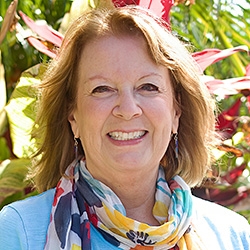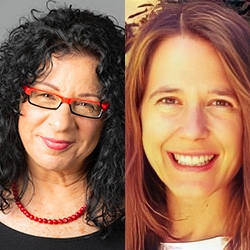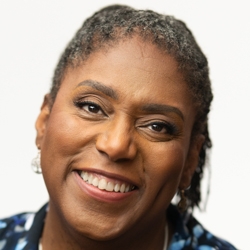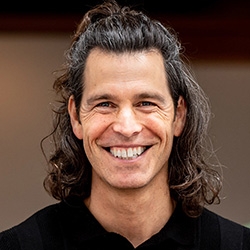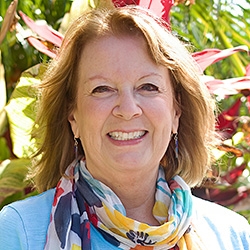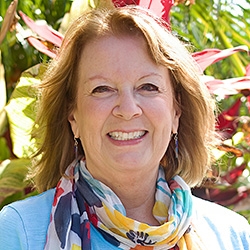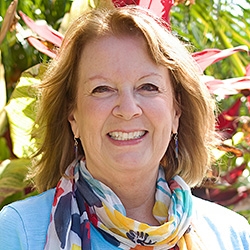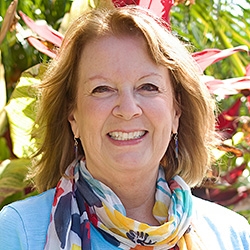

Search Results: needs
-
Transform your meeting facilitation with sociocratic tools like circle meetings and more.
-
Trainer Tip: We all want to be valued in our totality, to be loved even when we make mistakes. Wouldn’t we also like to offer this to ourselves? Compassion is about seeing the humanness in everyone, including ourselves. One way to express compassion is to remember your entire relationship and history of love with someone as a whole, rather than focusing on one disappointing incident.
-
- Access, follow and train your intuition: how to know without knowing;
- Navigate difficult situations with care for all through an active awareness of your own power, as well as other sources of power in the room;
- Remain aware of who speaks and who doesn’t, of those whose pain is invisible – and what you can do about it;
- Walk towards someone presenting a challenge to a group you are facilitating, while continuing to hold care for the entire group, and more.
-
- Find intuitive guidance for bridging divides
- Connect to deep needs that have been habitually ignored
- Discharge the anxiety held in old, embodied reactions
- Make decisions and take actions that align with your values
- Cultivate resources for more enjoyably and more capably building relationships
-
Our craving for love, acceptance, and approval can lead us to show only parts of ourselves and hide others. This lack of authenticity breeds disconnection and mistrust, leading to those very needs not being met. Once I accept myself, being authentic is easier. And then people in my life can love me for who I really am, warts and all.
-
Strengthen team collaboration by building relationships and navigating shared challenges.
-
- Tune into your self-dialogue with a compassion that supports loving presence
- Shift limiting beliefs about your parenting patterns so you can choose consciously
- Transform frustration, confusion, or guilt into constructive, honest discussions
- Foster your ability to say yes and no in a way that supports your natural limits
-
- Explore ways of parenting that will shape a future full of purpose and possibility
- Discover how your values can serve as a compass to guide you forward
- Understand the relationship between your present actions and desired outcomes
- Gain experience in balancing your child’s present needs with long term visions!
-
- Inscrease compassion for yourself through understanding why your capacity may lag so far behind your commitment and what you can do to bridge the gap
- Higher Compassion for your children as you understand better what life is like from within their own experience rather than from the outside looking in
- Surge in energy that you can put into new conversations with them designed to make agreements that are based on the truth of where you all are rather than on any "should"
-
- Discover how to figure out what you really want, then how to ask for it
- Learn how to make requests with ease and how to guess the requests of others
- Practice strategies for turning ‘demand energy’ into ‘request energy’
- Be able to stand firmly for your needs and assertively ask for what you want
-
Trainer Tip: If you are motivated by fear, guilt, blame or shame, your actions will usually be motivated by avoiding pain. The best way to experience permanent, lifelong change is to focus on how your life will improve when you make a change. Notice when you attempt to motivate yourself and others with guilt, blame, or shame today, and then look for motivations that enrich life instead.
-
NVC is a process. It’s the willingness and effort to empathize with both sides of a conflict, encouraging each side to empathize with the other, and then seeing what solution can arise, working together to meet the needs of both sides. Empathy is the experience of being not separate as well as being an individual. It's seeing we're all part of the one ever-flowing consciousness of being, all unique expressions of this unity.
-
There are many polarizing issues we can resist and fight over. The word "resistance" can mean fighting against what we don’t agree with in counterproductive ways. It can also be the illusion and futility of mentally fighting against reality of 'what is'. But acceptance, non-resistance, of what is doesn’t mean powerless resignation. Another way to resist is to accept and love whole-heartedly, with empathy and care for the people doing the things we are resisting.
-
Trainer Tip: Notice when you create stories about why something occurred. Commit to only observing facts. Then make decisions that are likely to give you relief and joy. For instance, if someone is late you may think that she’s inconsiderate or values another thing more than you. Instead, observe what you know—that she's later than agreed. From there, you could call her to find out what’s going on.
-
Trainer Tip: Here are four Stages of Emotional Maturity, also known as Stages of Emotional Liberation. Be aware of what stage of emotional maturity you are in today. And, celebrate it.
-
Heal, reconnect and cultivate presence through self compassion as you restore wholeness.
-
Trainer Tip: In an efficient group process, clarity is key. Try to only say things if you are clear what you want back from the group. Then ask for what you want so people don’t have to figure it out for you. If someone says something and you’re not sure what he wants back from the group, anyone can assist by saying this: “I’m confused about what you would like from us. Would you help us clarify what kind of a response you’re looking for?”
-
Among NVC practitioners, empathy can be superficial. How open are you to being influenced by what others are saying? Do you reflect back and then guard and remain within your position of being right, even as you say otherwise? Only when we're eager to be influenced by what they say can we connect, expand our world and thus, shift the field. Without such openness we fool ourselves into thinking we are truly empathic listeners.
-
When your dedication to something is fueled by a profound intention to benefit all life, you may call it your spiritual practice. This means cultivating compassion, wisdom, and skills to notice what truly serves life. Its a discovery and experiment in what does and doesn't serve life, and what you can do now - its not about what you believe or not. Continuously inquire: "What most deeply serves life and how can I do that right now?"
-
Sometimes I hear people say things like, “I didn’t do Compassionate Communication this week.” Or “I tried Compassionate Communication when I was arguing with my wife last week.” Compassionate Communication is not a thing to do, or to pull out of our bag of tricks once in a while. Compassionate Communication is a consciousness of valuing everyone’s needs and of valuing connection more than being right, winning or protecting ourselves. It is a way of living.

Quick Links
Subscription Preferences
Stay In Touch!
Looking for ways to keep up with NVC Academy news, get special offers, free resources, or words of inspiration? Here are five ways to stay engaged:


